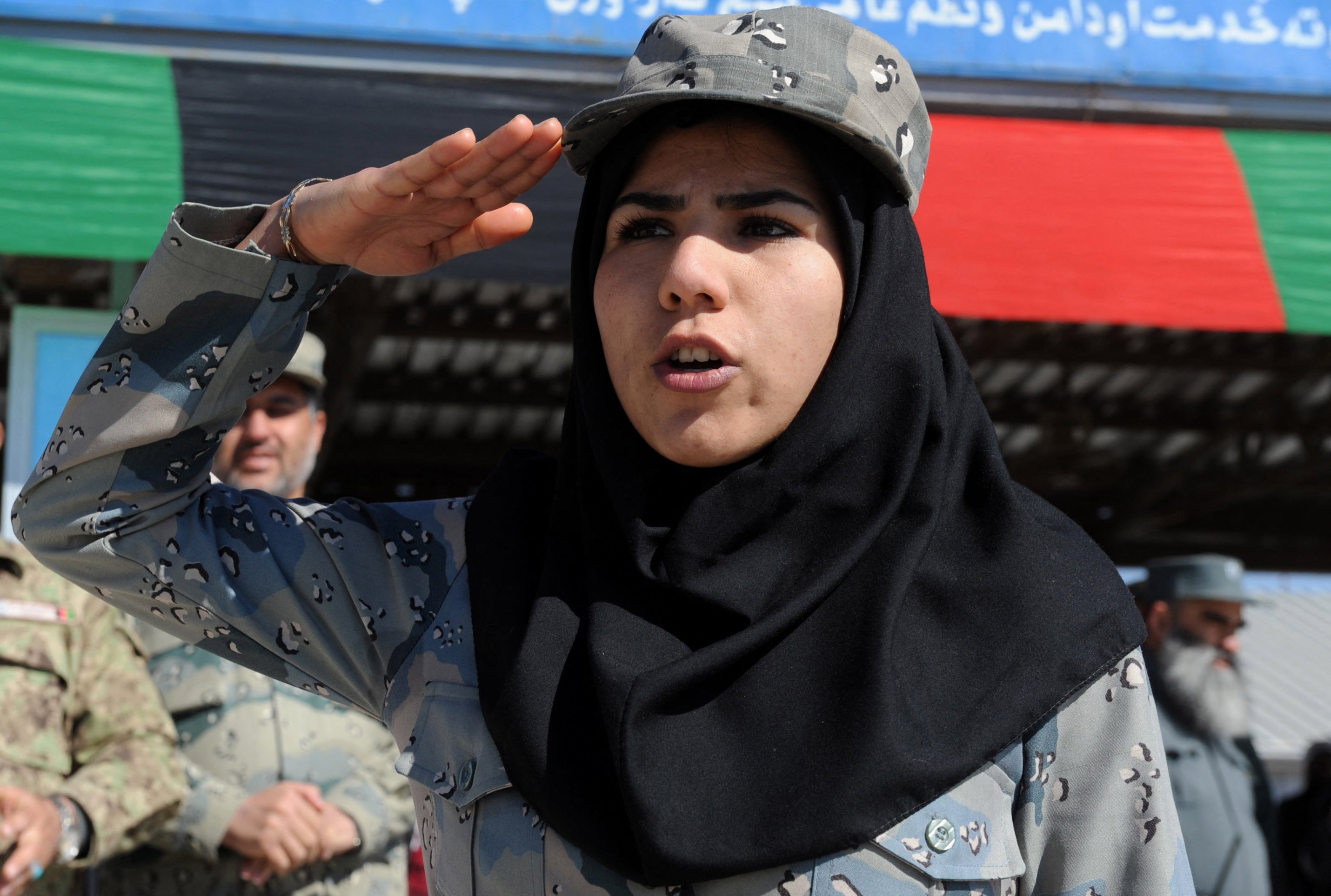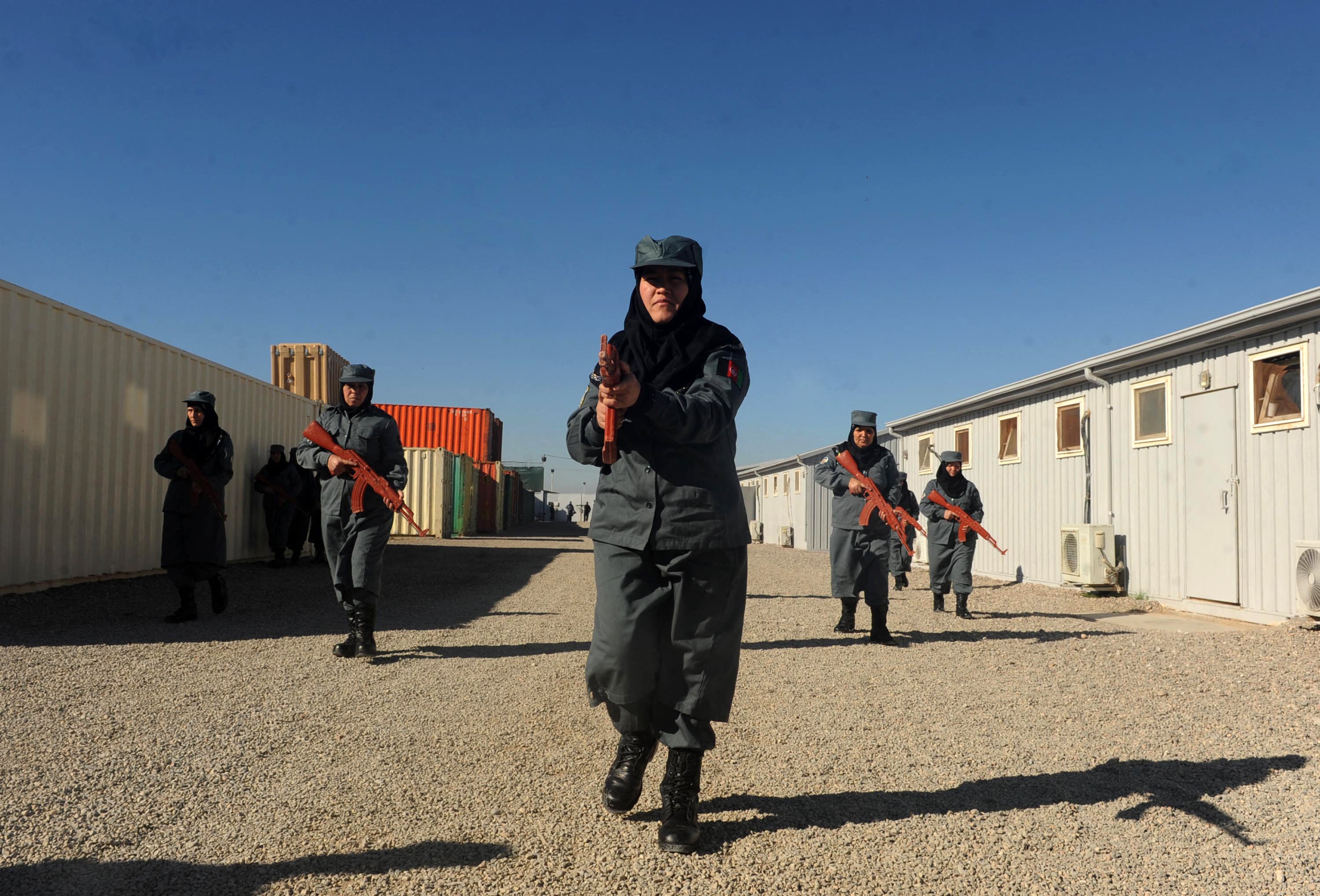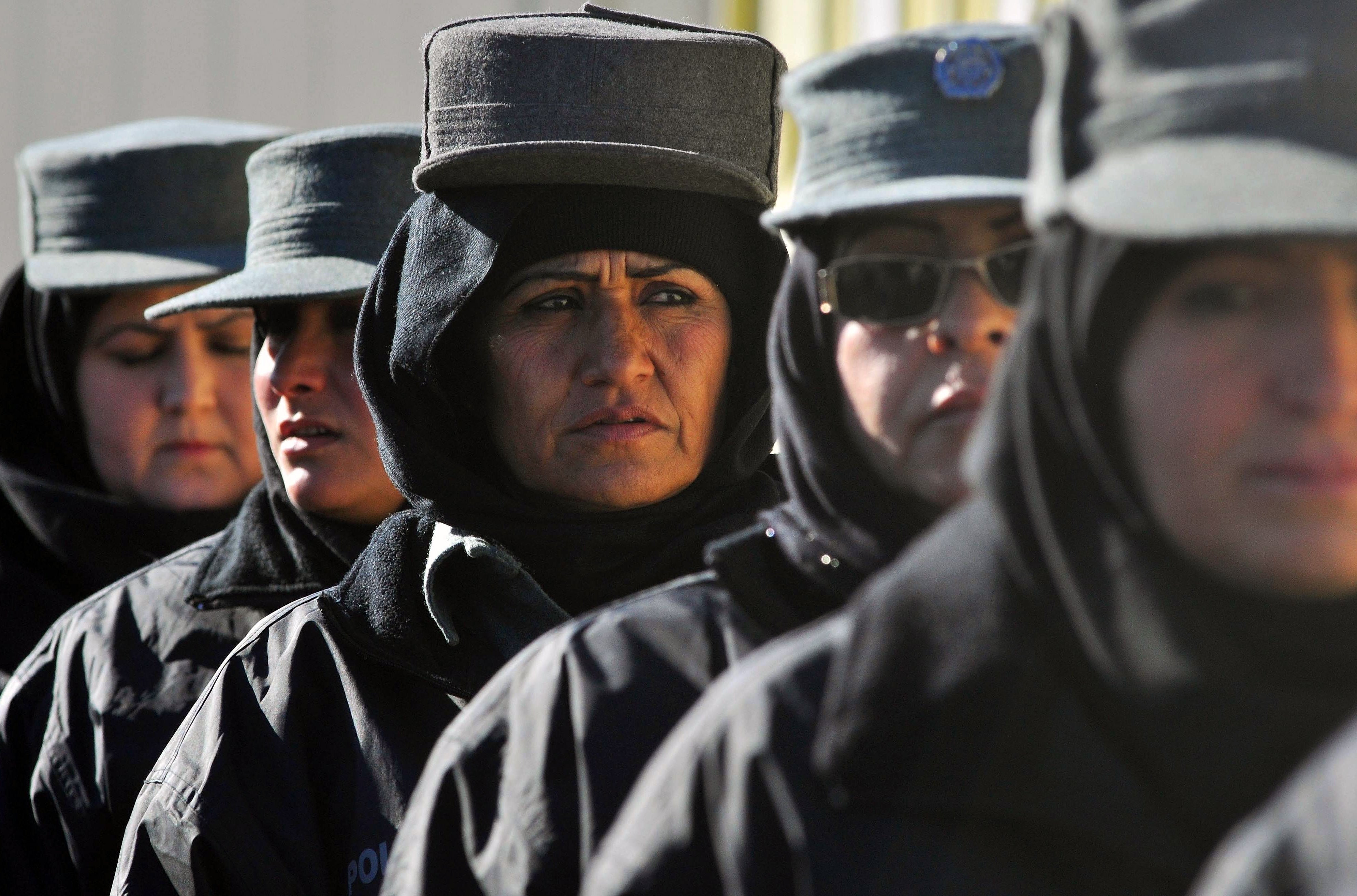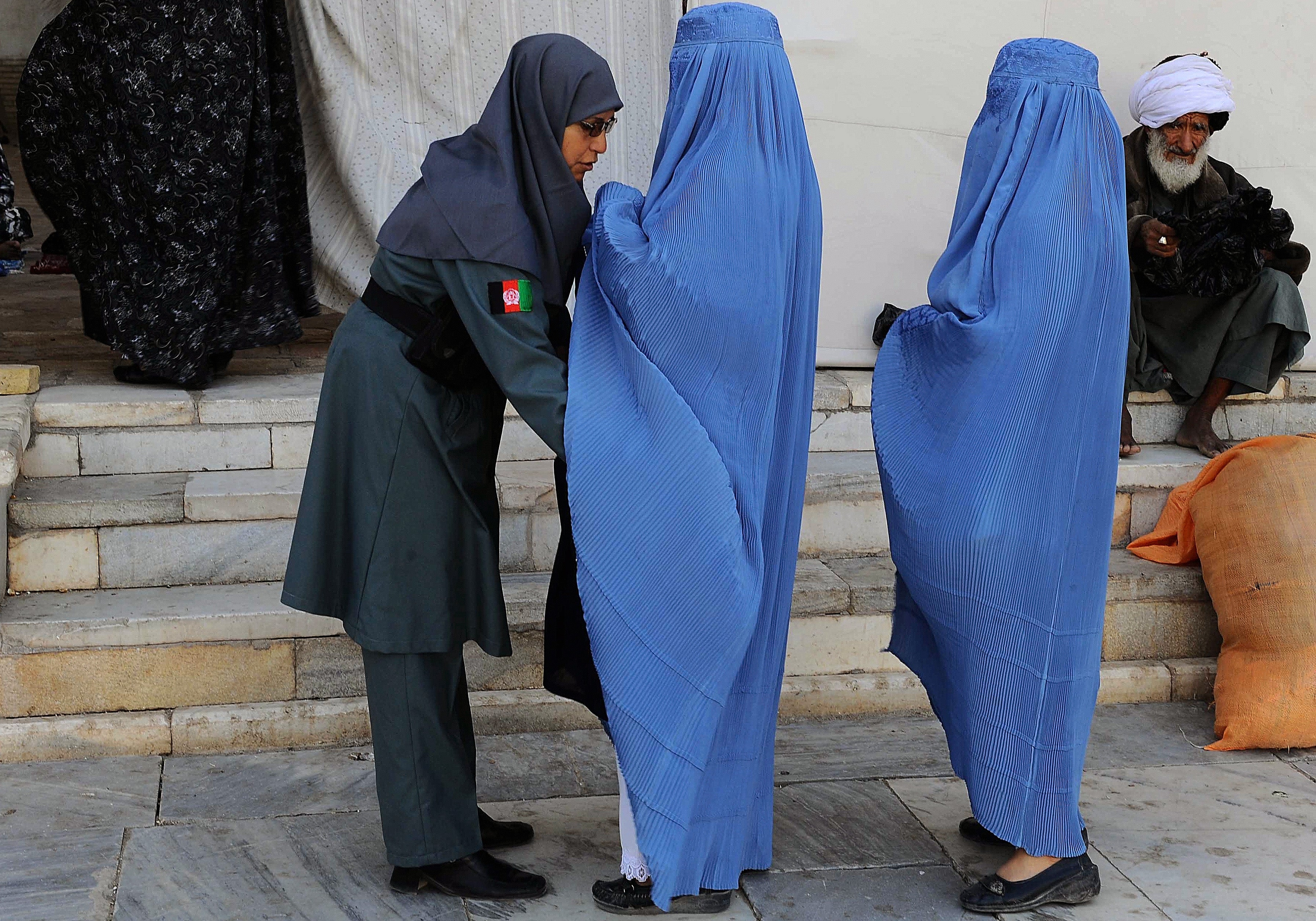Western nations should evacuate Afghan policewomen who faced sexual abuse, HRW says
Afghan women serving in police were subjected to sexual assault and harassment even before Taliban took over, human rights watchdog says

Your support helps us to tell the story
From reproductive rights to climate change to Big Tech, The Independent is on the ground when the story is developing. Whether it's investigating the financials of Elon Musk's pro-Trump PAC or producing our latest documentary, 'The A Word', which shines a light on the American women fighting for reproductive rights, we know how important it is to parse out the facts from the messaging.
At such a critical moment in US history, we need reporters on the ground. Your donation allows us to keep sending journalists to speak to both sides of the story.
The Independent is trusted by Americans across the entire political spectrum. And unlike many other quality news outlets, we choose not to lock Americans out of our reporting and analysis with paywalls. We believe quality journalism should be available to everyone, paid for by those who can afford it.
Your support makes all the difference.Nato member nations should evacuate Afghan policewomen who were sexually abused and harassed while they served under the previous Western-backed administration and now face a growing threat from the Taliban, Human Rights Watch has urged.
The US, Canada, Britain, Germany and other countries that contributed military forces to the 20-year war in Afghanistan must support the former policewomen with asylum and prioritise them for refugee resettlement, the human rights watchdog has said.
Some 3,800 women who served in the Afghan police after 2013, aiding Nato in carrying out law and order functions, feel betrayed not only because they were not evacuated but their grievances about sexual harassment claims went unheard, researchers at Human Rights Watch told The Independent.
In a report titled “Double Betrayal: Abuses against Afghan Policewomen Past and Present”, the group notes that threats from the Taliban have forced many of these former policewomen to go into hiding. While some have escaped to neighbouring Pakistan and Iran, thousands remain inside the country, the group’s Afghanistan researcher Fereshta Abbasi told The Independent.
The report urges the US, UK, EU, Canada, and Japan to settle these vulnerable women as refugees on a priority basis.

One former policewoman recounted her sexual abuse to Ms Abbasi. “The district police chief came to her house at night and raped her. Her husband was away that day. She cried in front of me. She said she couldn’t file a complaint because she feared her husband would divorce her and she would lose custody of her children.”
Another former policewoman, in southeastern Khost province, told the watchdog she witnessed male guards harassing women, stopping them and even touching them. “The head of intelligence for my station really harassed me. He told me that he could do whatever he wanted to me,” she said.
Fear of getting disowned by their families for working in police was already rampant before the Taliban took over and made the situation worse for these women.
“Almost all of them have received threatening calls from the Taliban, their houses have been raided. They are being threatened by the Taliban but also by their families because being a policewoman was never accepted in the Afghan society,” Ms Abbasi told The Independent.
A former policewoman said the Taliban called and asked her to return to her old job but didn’t specify what they wanted her to do. The Taliban have been found to harass and punish Afghans they consider to have collaborated with Western forces and the administration backed by them.
“I got scared and cut the phone call,” she said. “Again I received a phone call and this time I was asked, ‘Will you come by yourself or shall we come and drag you by the hair?”
The woman said she wears a mask and glasses when she steps out to avoid being recognised. “If people find out, they might rat me out to the Taliban that I used to work for police,” she told the watchdog.

Ms Abbasi said Afghan women serving in police until the Taliban took back the county were subjected to frequent sexual assault and harassment.
Many were propositioned by superiors for sex in exchange for promotions or to avoid dismissal. “I spoke to one of the former policewomen who said she served the government in the same job role for 20 years because she rejected demands of sexual favours,” she said.
“Now, they are asked to come back by the Taliban to do menial jobs as sweepers, prison guards or clerks, but nobody can ensure their safety.”
Many of the women interviewed by Human Rights Watch reported suffering from psychological distress and trauma, anxiety, depression and panic attacks from the abuse they experienced. They are unable to find or even afford psychosocial support as medical help is scarce under the Taliban, the group said.

“The conditions under the Taliban are abysmal and horrifying but that doesn’t mean these policewomen who served alongside the UK and the US among other nations don’t get to hold those who harassed them accountable,” Ms Abbasi said.
The Nato states that funded and trained Afghan policewomen should also press the Taliban to end abuses against women, she said.
Join our commenting forum
Join thought-provoking conversations, follow other Independent readers and see their replies
Comments